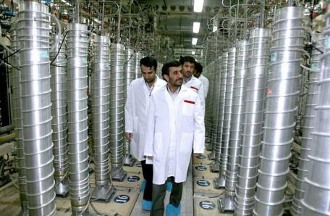In an October 22 press release, the Department of Justice (DOJ) announced another victory in its Global War on Terrorism, renamed the Overseas Contingency Operation to continue its jihad on Muslims, abroad and at home.
By now the charges are familiar, always bogus, and announced earlier about three Ohio men in a Justice Department February 2006 press release as follows:
"Three (Toledo, Ohio men) have been charged with conspiring to commit acts of terrorism against persons overseas, including US military personnel serving in Iraq, and with conspiring to provide material support to terrorists...."On February 16, 2006, a Cleveland federal grand jury returned a five-count indictment against Mohammad Zaki Amawi, Marwan Othman El-Hindi, and Wassim I. Mazloum alleging they conspired, together and with others, "to kill or maim persons outside of the United States, including US military personnel serving in Iraq, and with conspiring to provide material support to terrorists. Amawi is also charged, individually, with distributing information regarding explosives and two counts of making verbal threats against the President of the United States."
Amawi holds both US and Jordanian citizenship. El-Hindi is also a US citizen, and Mazloum is a permanent legal resident.
The indictment further alleges that these men "engaged in activities in furtherance of their common goal to wage violent jihad, or 'holy war,' against American soldiers and Coalition allies serving in Iraq. Such activities included training and target shooting, receiving instructions in the construction and use of explosives - including improvised explosive devices (IEDs) and 'suicide bomb vests,' - recruiting others to participate in jihad training, attempting to raise funds to finance the training and to support violent jihad activities, and attempting to acquire and deliver materials - including explosives and computers - to others engaged in violent jihad in the Middle East. The indictment alleges that the conspiracy began sometime prior to November 2004."
Amawi was accused of traveling to Jordan on August 22, 2005 to deliver five laptop computers to the "co-conspirators." They were never delivered. No explanation was given why. Perhaps there were none in the first place, but, no matter. Carrying, transporting, or delivering computers isn't a crime.
Amani also "allegedly downloaded a video from a 'mujahideen website' which depicted the step-by-step construction and use of a bomb vest, and then copied it on a disk and distributed (it) to an individual who was going to be providing jihad training to the defendants. That individual - identified in the indictment as 'the Trainer' - has been cooperating since the beginning of this investigation (as a paid informant) and acting on behalf of the government" to entrap innocent men with no plans to commit terrorism. More on him below.
Other charges alleged "that in October 2004 and again in March 2005, Amawi made verbal threats to kill or inflict bodily harm upon the President of the United States. The maximum sentence....of conspiring to kill or maim persons in a foreign country is 35 years in prison, or life in prison if the conspiracy is to kill."
The maximum sentence for conspiring to provide material support to terrorists is 15 years; for distributing information on explosives, 20 years, and for making verbal threats against the President, five years.
In a prepared statement, Attorney General Alberto Gonzales said:
"This case stands as a reminder of the need for continued vigilance. We are committed to protecting Americans - here and overseas, particularly the brave men and women of the US Armed Forces who are serving our country by striving valiantly to preserve democracy and the rule of law in Iraq."FBI Director Robert Mueller added:
"These arrests in indictments are examples of how, through close cooperation with our partners and enhanced intelligence capabilities, we are able to detect terrorist planning and prevent acts of terrorism before they occur."Members of Toledo's Muslim community were shocked, saddened, and angered over the arrests. They also feared growing anti-Muslim sentiment against its 6,000 members that once included former mayor Michael Damas (1912 - 2003), perhaps the first Arab-American elected (in 1959) to high office in a large US city.
After their arrest, Amawi's (unnamed) brother told CNN he had nothing against the president, just the war. Mazloum's brother, Bilal, said his brother didn't own a gun or know how to use one. "He liked to help people. He never tried to hurt (anyone). I mean, he never (did) anything bad."
El-Hindi's lawyer at the time, Stephen Hartman, said:
"Let's face it. The atmosphere in America now, if there is an allegation of terrorism, and you are Middle Eastern, (or) Muslim, people are going to assume you're guilty" because prosecution charges and media reports imply the worst.
On February 23, 2006, the Toledo Blade reported that a year before his arrest, El-Hindi "offered spiritual nourishment to Muslim prisoners at the Toledo Correctional Institution as an 'imam,' or religious leader." Yet according to FBI Director Mueller:
"Prisons continue to be fertile ground for extremists who exploit both a prisoner's conversion to Islam while still in prison, as well as their socioeconomic status and placement in the community upon their release."That said, warden Khelleh Konteh, explained that federal agents never asked him about El-Hindi's work, and expressed surprise about his arrest. Before his appointment was approved, a routine background check showed no prior arrests and a clean record.
On June 13, 2008, a jury convicted the defendants on all counts:
-- Amawi and El-Hindi on conspiring to kill or maim persons outside the United States, conspiring to provide material support to terrorists, and two counts of distributing information on explosives; andAt the time, the DOJ claimed these "convictions represented the nation's first successful trial of a 'homegrown terror cell' for terrorism related crimes."
-- Mazloum on conspiring to kill or maim persons outside the United States and conspiring to provide material support to terrorists.
On October 22, a DOJ press released announced: the "Three (men were) Sentenced for Conspiring to Commit Terrorist Acts Against Americans Overseas:"
-- for Amawi, 20 years in prison, followed by life on supervised release;At trial, Amawi's lawyer, Edward Bryan, said his client hated the Iraq war, cheered US soldier deaths, admired suicide bombers' courage, but isn't a terrorist and talk of going to Iraq was just talk.
-- for El-Hindi, 13 years, including 12 years for "terror violation(s)" and 18 months on fraud; and
-- for Mazloum, 100 months or 8.3 years, followed by life on supervised release.
"He doesn't have the courage to be like them," said Bryan. "It's fantasy. It's stuff going on in (his and other) people's minds, but not what they're really going to do. (He had no) plan to go out and murder American soldiers." He wanted to learn how to defend himself because he feared he and his family were threatened like other Muslims. "This is defensive Islam. Do they not have the right to defend themselves" without being charged with terrorism or conspiracy to commit it?
El-Hindi's lawyer, Charles Boss, said despite the "quantity" of evidence, its "quality....wasn't there." In other words, for his client and the others, it was the usual circumstantial claptrap, most gotten from the paid informant who egged on the three men, gave them money and gifts, including a cell phone and laptop, and got them to vent the way millions of Americans do about an illegal war and the millions of lives it cost.
Lawyers for all three said, over a two year period, the undercover informant manipulated their clients by suggesting jihadi tactics and entrapped them in recorded conversations.
According to Amawi, he took them to a shooting range and encouraged them to act violently. He's "the one (who) put a real gun in my hand," he said in his first public comment since his 2006 arrest. The informant lied, he said, about his wanting to travel to Iraq to become a martyr. "I'm against suicide bombing. I made this very clear."
Former Army Special Forces soldier Darren Griffin was the paid informant (referred to above as "Trainer") and key prosecution witness. He testified that by posing as a disgruntled Islam convert, he won their trust, then manipulated them through holy war training talk, secretly recorded on conversations to entrap them. However, he admitted that the men were only together once during his involvement, and he never saw emails from them about wanting to kill soldiers.
Defense attorneys said the men never bought weapons or terrorist supplies, never planned an attack, and never carried one out. They merely expressed anger, not terror plans or conspiracy to commit them. But clever prosecutors can intimidate juries to believe it, so innocent Muslims, like the defendants, are easily entrapped, convicted, and sentenced to long prison terms, even though there's no plot, no weapons, no crime, nor intention to commit one.
Talk is talk, not a crime, and, in this case and others like it, manipulated to sound incendiary, but that's not proof of intent. No matter, if juries believe it, innocent victims are punished for being Muslims at the wrong time in America.
Stephen Lendman is a Research Associate of the Centre for Research on Globalization. He lives in Chicago and can be reached at lendmanstephen@sbcglobal.net.
Also visit his blog site at sjlendman.blogspot.com
 “
“


 My husband had a Gazan resident identity card. A few years ago, the Palestinian Authority announced that residents of Gaza living in the West Bank could exchange their identity cards for West Bank identity cards. Muhammad went to the Palestinian Population Administration office in Ramallah and on 1 October 2007, he was issued a West Bank identity card. He did it too feel safer, even though he used to travel to Nablus, Ramallah, Jenin, and Jericho and never had any problems or trouble at checkpoints.
My husband had a Gazan resident identity card. A few years ago, the Palestinian Authority announced that residents of Gaza living in the West Bank could exchange their identity cards for West Bank identity cards. Muhammad went to the Palestinian Population Administration office in Ramallah and on 1 October 2007, he was issued a West Bank identity card. He did it too feel safer, even though he used to travel to Nablus, Ramallah, Jenin, and Jericho and never had any problems or trouble at checkpoints.



